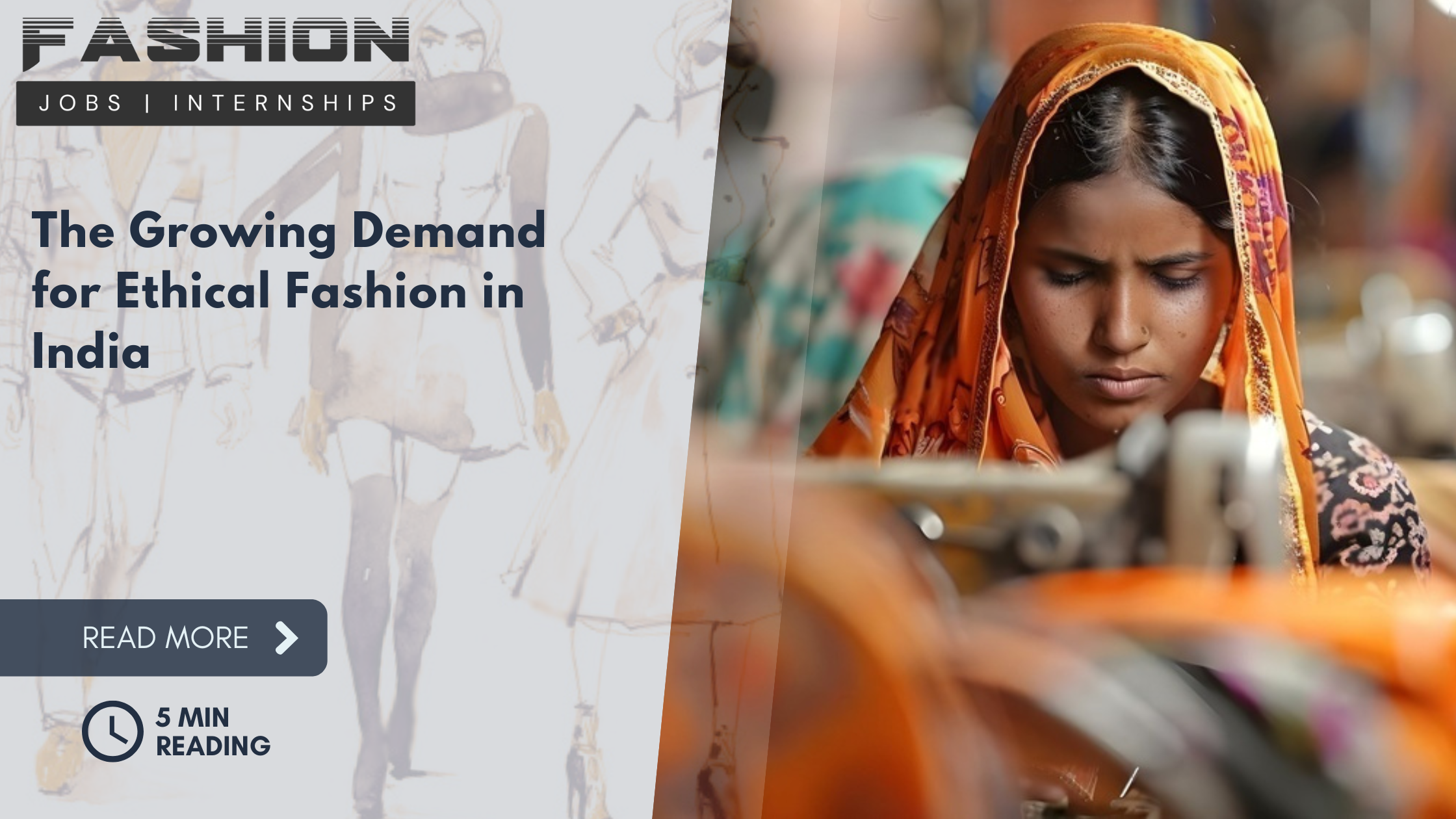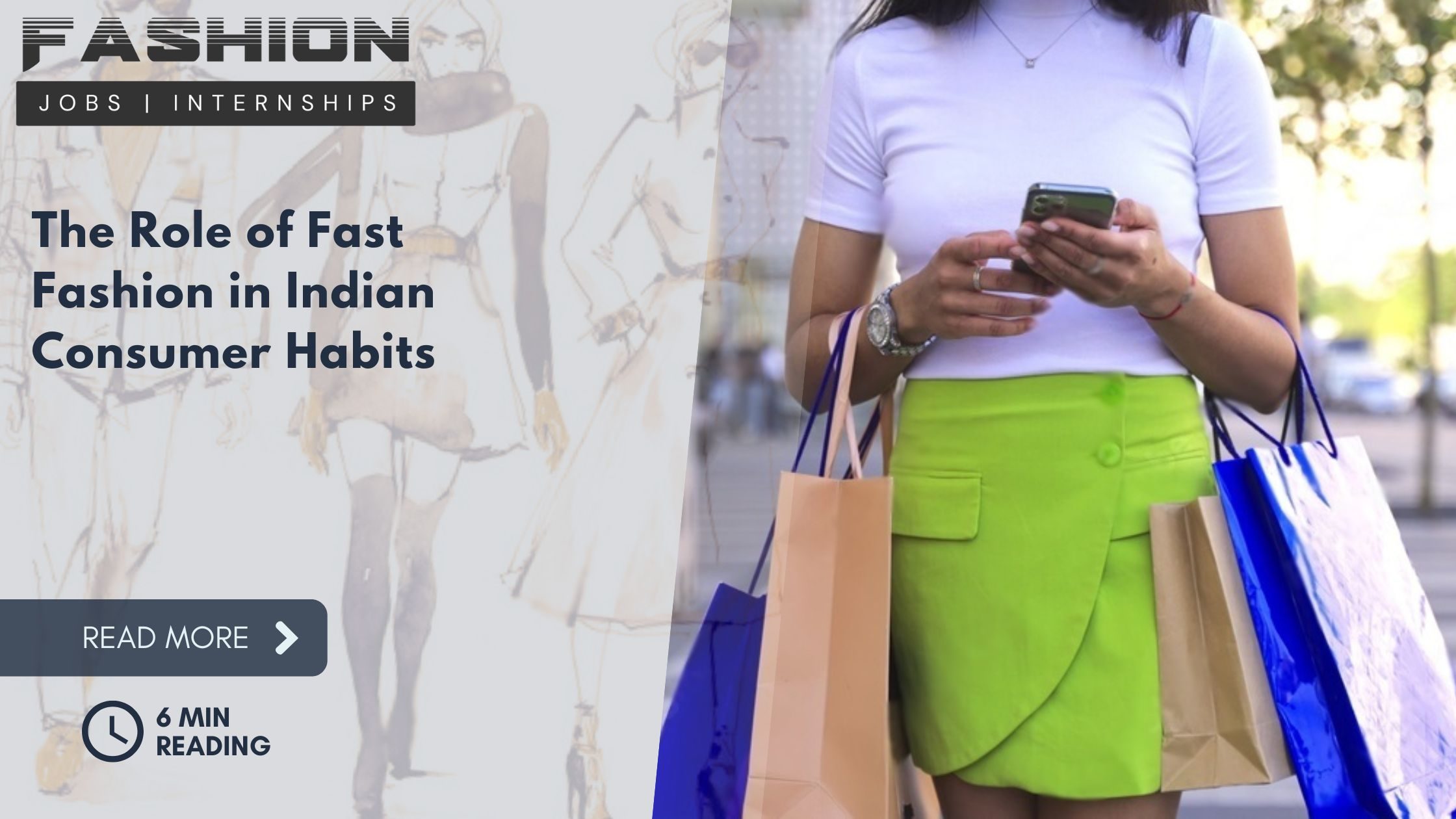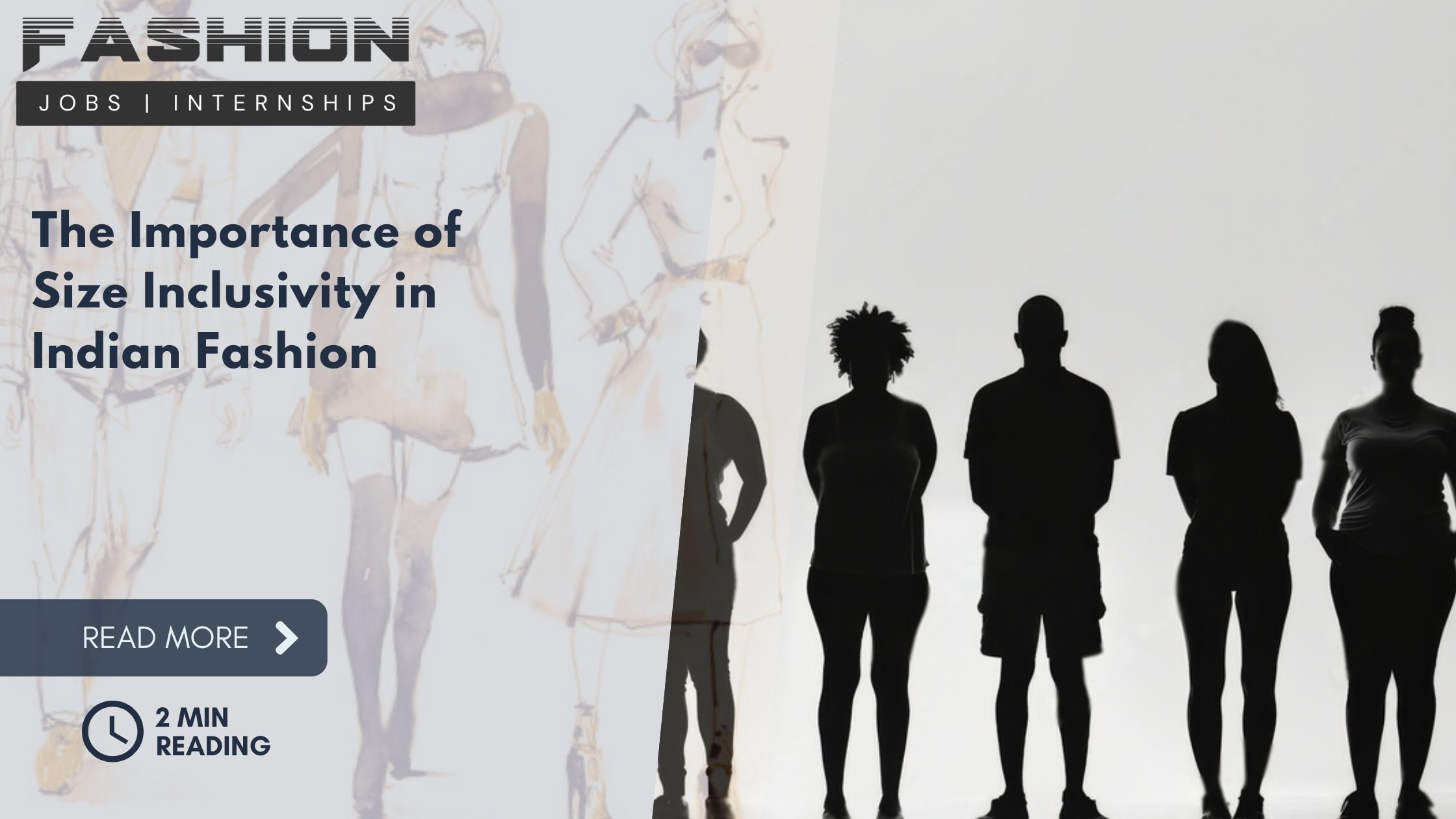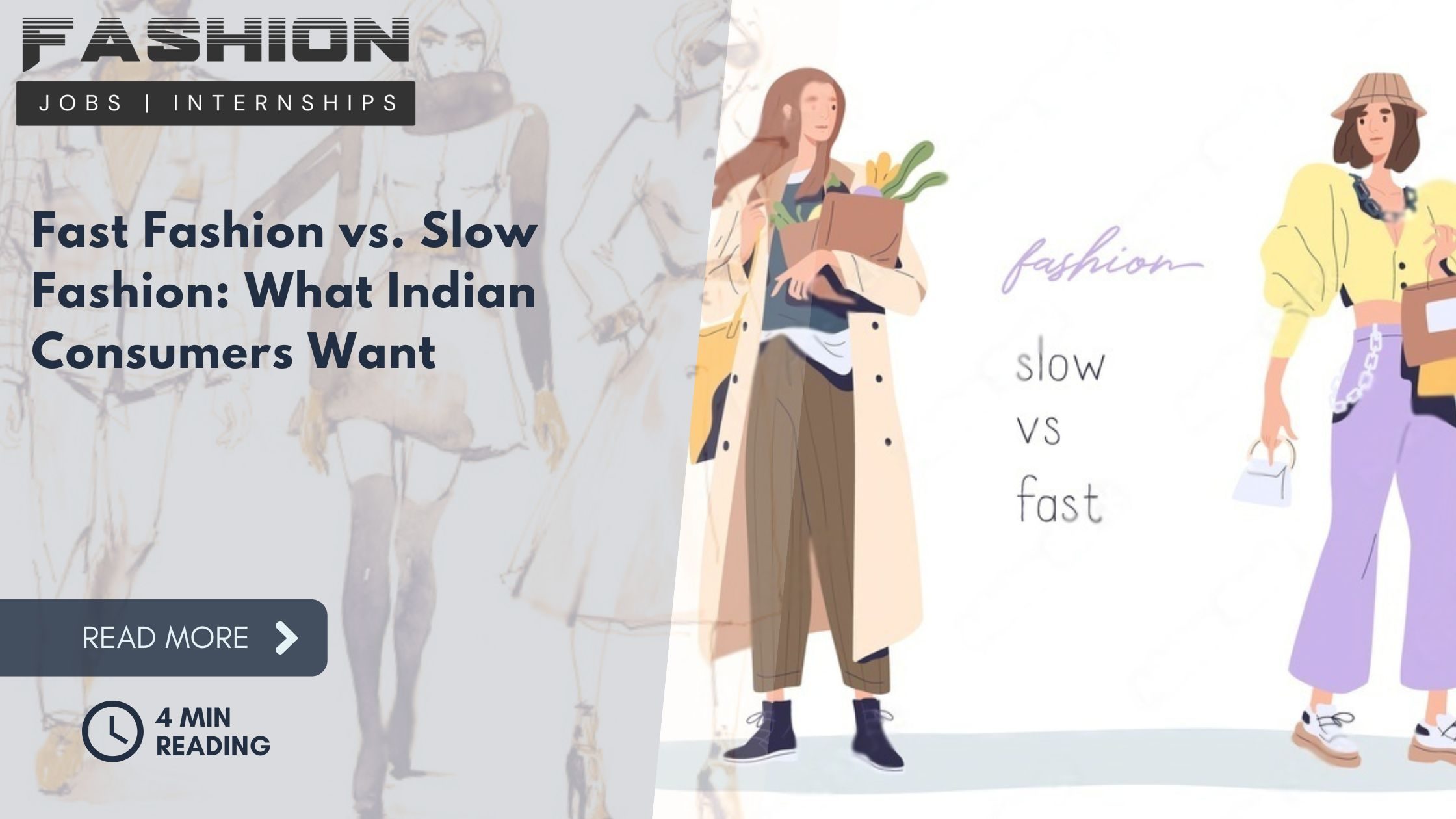We're witnessing a seismic shift in the Indian fashion landscape, where consumers are rejecting the unsustainable and exploitative practices of fast fashion and instead demanding accountability, transparency, and social responsibility from brands. The Rana Plaza disaster in 2013 exposed the dark underbelly of the garment industry, and since then, we've been "voting with our wallets," choosing to support brands that prioritize ethics and sustainability. With over 12,000 job openings in sustainable fashion and conscious consumers driving the revolution, it's clear that the future of fashion lies in being kind to the planet and its people – and we're just getting started on this journey.
Shifting Consumer Behavior in India
Our wallets have finally caught up with our conscience – and it's about time! For years, we've turned a blind eye to the dark underbelly of the fashion industry, prioritizing cheap thrills over the well-being of garment workers and the environment.
But the jig is up. We're no longer willing to sacrifice our values for the sake of a trendy outfit. With over 3,178 job openings in fashion designing in India, it's clear that the industry is growing and evolving, and consumers are starting to take notice of fashion job opportunities.
As a result, we're starting to expect more from the brands we support, and brands are taking notice.
We're waking up to the fact that our fashion choices have real-world consequences. The Rana Plaza disaster in 2013 was a devastating wake-up call, exposing the appalling working conditions and lack of accountability in the garment industry.
And let's not forget the environmental impact of fast fashion, which is responsible for 10% of global carbon emissions.
We're not just talking about the eco-warriors and social activists here. We're talking about everyday consumers who are starting to care about the origin story of their clothes. We're asking questions like "Who made my clothes?" and "What's the environmental cost of my fashion addiction?" And we're expecting answers.
The result? We're voting with our wallets, choosing to support brands that prioritize ethics and sustainability over profit and growth. It's a seismic shift in consumer behavior, and it's about time. We're taking back control of our purchasing power, and we're using it to demand a better fashion industry – one that's fair, sustainable, and just.
Rise of Conscious Fashion Consumers
We're calling BS on fashion's dirty little secrets, and it's about time. We're no longer buying into the myth that style has to come at the cost of the planet and its people. The rise of conscious fashion consumers in India is a revolution, and we're proud to be a part of it.
We're done with fast fashion's throwaway culture, where trendy pieces are discarded after a single wear. We're done with the environmental degradation, the toxic waste, and the exploitation of resources. With over 3,178 job openings in fashion designing in India, fashion designers are now more than ever being encouraged to think sustainably and ethically in their designs.
We're also seeing a rise in companies offering over 12k open job positions that prioritize sustainability and conscious consumerism.
We're waking up to the fact that our fashion choices have real-world consequences. We're learning to ask the hard questions: who made my clothes, under what conditions, and at what cost? We're demanding transparency, accountability, and sustainability from brands.
We're seeking out labels that prioritize people and the planet, not just profits. We're recognizing that fashion can be a powerful tool for change, not just a means of self-expression.
We're not perfect, and we're not expecting overnight transformations. But we're committed to making conscious choices, one outfit at a time. We're willing to invest in quality over quantity, to repair and repurpose, and to support brands that share our values.
We're the generation that's saying no to fashion's status quo, and yes to a more just, more equitable, and more sustainable future. Join us – together, let's redefine the fashion landscape in India.
Exploitation in the Garment Industry
As the glamour of fashion week fades, the dark underbelly of the garment industry rears its ugly head, revealing a tangled web of exploitation that's as old as the industry itself.
We're not talking about some isolated incident or rare anomaly – we're talking about a systemic problem that's woven into the very fabric of this industry.
Behind the glossy ads and trendy runway shows, there are millions of workers toiling away in sweatshops, earning pennies for every dollar we spend on the latest fashion trends. Many of these workers can find temporary jobs through websites like fashion job listings, but often these jobs lack stability and fair wages.
In addition, portfolio building is an essential step for fashion professionals, yet it can be challenging to create a portfolio that showcases one's skills and experience without access to resources and networking opportunities.
We're complicit in this exploitation, folks. Every time we buy that cheap t-shirt or those trendy jeans without asking questions, we're perpetuating a cycle of oppression. We're telling the industry that it's okay to prioritize profits over people, that it's acceptable to treat human beings like disposable machines.
The numbers are staggering – millions of workers, mostly women, are subjected to long hours, low wages, and hazardous working conditions. And for what? So we can look good on Instagram?
Let's not pretend like we didn't know this was happening. We've all heard the whispers, the rumors, the occasional exposé. But we've chosen to ignore it, to turn a blind eye to the suffering that's fueling our fashion addiction.
It's time to wake up, to acknowledge the ugly truth, and to demand better. We deserve better. The workers deserve better. It's time for a fashion revolution that puts people over profits.
Environmental Impact of Fast Fashion
We're about to get real about the dirty secrets of fast fashion – the industry that's single-handedly choking our planet.
With many fashion designers and stylists now looking for opportunities in sustainable fashion, websites like Jobs for Fashion Designers offer a platform to find roles that align with their values.
We're generating toxic waste at an alarming rate, poisoning our air, water, and soil, and depleting our natural resources like they're going out of style (oh wait, they are).
It's time to face the music and confront the devastating environmental impact of our addiction to cheap, trendy clothes.
Toxic Waste Generation
Toxic waste generation is the dirty little secret of India's fast fashion obsession, a ticking time bomb threatening to suffocate the country under a mountain of hazardous waste.
We're talking about the chemical-laden dyes, the synthetic fabrics, and the non-biodegradable materials that end up in our landfills and waterways. The fast fashion industry is basically poisoning our planet, and we're letting it happen.
With numerous opportunities for fashion designers and stylists to find jobs on platforms like fashion job listings, it's surprising that many still opt for unsustainable practices.
Additionally, having a portfolio to showcase one's work can also help in attracting potential employers who value eco-friendly fashion.
We're guilty of buying into the "throwaway culture" where clothes are worn once and discarded, only to be replaced by more trendy, cheap, and toxic pieces.
It's a vicious cycle that's choking our environment. Did you know that the fashion industry is responsible for 10% of global greenhouse gas emissions? That's more than the entire airline industry!
The worst part? Most of these toxic waste generators are operating with impunity, without any accountability or regulations to curb their destructive practices.
We need to wake up and take responsibility for our actions.
It's time to demand more from our fashion brands and hold them accountable for their environmental crimes.
We deserve better – our planet deserves better.
It's time for a fashion revolution, and it starts with us.
Resource Depletion Rate
Fast fashion's thirst for resources is unquenchable, and we're the enablers, fueling its addiction with our insatiable appetite for trendy, cheap clothes.
We're talking massive amounts of water, energy, and land, not to mention the staggering amounts of pesticides, fertilizers, and other toxic chemicals used to grow and process the raw materials. Many top brands and designers have already begun to respond to this crisis, offering exclusive fashion job listings for those looking to make a difference in the industry fashion job listings.
It's a vicious cycle, and we're stuck in the middle, blindly supporting this unsustainable system. Career resources and insights are available for those looking to break free from this cycle and pursue a career in sustainable fashion career resources.
It takes around 1,300 liters of water to produce just 1 kilogram of cotton, equivalent to a single t-shirt and a pair of jeans.
- The fashion industry is responsible for around 10% of global greenhouse gas emissions, more than international flights and maritime shipping combined.
- Cotton production alone accounts for 24% of global insecticide use and 11% of global pesticide use, harming both humans and the environment.
We need to wake up and realize the devastating impact our fashion choices have on the planet. It's time to break free from the shackles of fast fashion and demand a more sustainable, ethical approach to fashion.
Growing Popularity of Sustainable Fabrics
We're not going to sugarcoat it – the environmental impact of fast fashion is a nightmare.
But, on a more optimistic note, we're seeing a significant shift towards sustainable fabrics, and we're stoked about it!
As fashion designers, stylists, and models in Chennai continue to explore eco-friendly options, many are now utilizing online platforms, such as career resources, to find job opportunities that align with their values.
From eco-friendly textile options to the rising popularity of bamboo and hemp fabrics, it's time to explore the game-changers in India's ethical fashion scene.
Eco-Friendly Textile Options
As we dive deeper into the world of eco-friendly fashion, it's thrilling to see sustainable fabrics taking center stage.
We're talking game-changers, folks! The fashion industry is finally waking up to the harsh reality of its environmental impact, and it's about time.
By providing a platform for fashion aspirants to find opportunities in the industry, we can bridge the gap between top talent and leading fashion brands Exclusive job listings and create a more sustainable future.
With the help of career resources and expert insights, individuals can make informed choices about the fabrics they choose to work with.
We're no longer limited to the conventional cotton, polyester, and nylon.
Oh no, we've got options now! *cue confetti*
Here are a few of our faves:
- Hemp: The ultimate rebel fabric, hemp is durable, UV-resistant, and requires minimal water and pesticides. Yeah, it's a total boss.
- Recycled polyester: Because who doesn't love a good upcycle? This fabric is made from post-consumer plastic waste, reducing the amount of trash in our landfills and oceans.
- Tencel: This sustainable fabric is made from wood pulp cellulose, and its production process is so eco-friendly it'll make you weep tears of joy.
It's time to bid adieu to fast fashion's wasteful ways and hello to a more conscious, sustainable approach.
We're not asking for much, just a fashion industry that doesn't destroy the planet, okay?
Bamboo Fabric Gains
Ditching conventional fabrics has never felt so good! We're finally waking up to the fact that our fashion choices have a significant impact on the planet.
And what better way to make a statement than with bamboo fabric? This sustainable superstar is taking the Indian fashion scene by storm, and for good reason. Not only does bamboo require minimal water and pesticides to grow, but it's also ridiculously soft and breathable.
Plus, it's naturally antibacterial and odor-resistant – talk about a triple threat! As the demand for sustainable fashion continues to grow, exclusive fashion jobs are becoming increasingly available, providing opportunities for designers to showcase their creativity and commitment to eco-friendly practices.
With a platform that connects fashion professionals with top brands and designers, the possibilities for innovation and growth are endless. We're loving how Indian designers are getting creative with bamboo fabric, incorporating it into everything from flowy maxi dresses to sharp tailored suits.
And the best part? It's becoming more accessible and affordable by the day. No longer do we've to sacrifice style for sustainability – with bamboo, we can have it all.
Hemp Is Rising
Suddenly, hemp is everywhere, and we couldn't be more thrilled!
It's about time this miracle fabric got the recognition it deserves. Hemp is the ultimate game-changer in the sustainable fabric scene, and we're obsessed.
Fashion designers and stylists can showcase their sustainable designs on platforms like Jobs for Fashion Designers to attract top fashion brands.
With the increasing demand for eco-friendly clothing, job opportunities in sustainable fashion are on the rise.
- Durable as hell: Hemp fabric is three times stronger than cotton and can last up to 20 years with proper care. Yeah, you read that right – 20 years!
- Water-saver extraordinaire: Hemp requires substantially less water than traditional crops, making it a water-conscious choice in a country like India where water scarcity is a major concern.
- Carbon-negative superstar: Hemp absorbs more CO2 from the atmosphere than most crops, making it a vital player in the fight against climate change.
We're not surprised that hemp is rising to the top of the sustainable fabric hierarchy.
It's a no-brainer, really. With its impressive durability, water-saving properties, and carbon-negative credentials, hemp is the ultimate fabric for the conscious consumer.
Get ready to join the hemp revolution, folks!
Indian Brands Embracing Ethical Practices
Scores of Indian brands are waking up to the reality that fashion can't just be about aesthetics; it's also about accountability.
We're talking transparency, sustainability, and social responsibility – the whole shebang. It's about time, if you ask us!
The likes of Anita Dongre, Raymond, and Fabindia are already on the bandwagon, making conscious choices to reduce their environmental footprint.
They're using eco-friendly materials, recycling waste, and promoting fair labor practices. Some are even taking it a step further by incorporating traditional Indian crafts and textiles into their designs, giving artisans a much-needed platform.
Many of these brands are also working with fashion designers and stylists to create visually appealing and sustainable clothing lines. Freelance fashion consultants are also playing a vital role in providing expert advice on fashion trends and styles to these brands.
We're not saying it's easy, but someone's gotta do it.
And let's be real, if Indian brands don't take the lead, who will? The fast fashion giants? Please. They're too busy churning out cheap, trendy clothes to care about the planet.
We need homegrown brands to take a stand and show the world that fashion can be both stylish and sustainable.
It's not just about doing the right thing, either.
Ethical fashion is also good business sense. Consumers are increasingly looking for brands that align with their values, and they're willing to pay a premium for it.
Challenges in Implementing Ethical Fashion
Fashion's moral compass is finally getting a tune-up, but let's not kid ourselves – the road to ethical fashion is paved with hurdles.
We're not naive; we're aware it's not going to be a cakewalk. There are real challenges that need to be addressed, and we're not just talking about the usual suspects like higher production costs or limited access to eco-friendly materials.
For instance, fashion designers and stylists in cities like Jaipur are facing challenges in finding job opportunities that align with their values, which is why exclusive fashion jobs are becoming increasingly important. Additionally, the lack of a platform for fashion professionals to build their portfolios and showcase their work to attract employers is another obstacle.
- Lack of transparency in supply chains: we can't fix what we can't see, and the opacity of many fashion brands' supply chains makes it impossible to hold them accountable for their actions.
- Limited consumer awareness: let's face it, most consumers don't know (or care) about the environmental and social impact of their fashion choices, and that's a major hurdle to overcome.
- Resistance to change from big players: the fashion industry is dominated by giant corporations that are reluctant to alter their profitable but unsustainable business models, even when faced with mounting evidence of the harm they're causing.
We're not going to sugarcoat it – these challenges are intimidating.
But we're also not going to let them deter us. We're willing to roll up our sleeves and get to work, because we're cognizant that the payoff will be worth it: a fashion industry that's not only stylish but also sustainable, ethical, and just.
Future of Ethical Fashion in India
We've faced the harsh realities of implementing ethical fashion in India, and now it's time to get optimistic.
The future looks bright, and we're not just saying that to make ourselves feel better. The demand for ethical fashion is growing, and it's not just a fleeting trend. Indian consumers are waking up to the fact that their fashion choices have consequences, and they're demanding better.
We're seeing a rise in homegrown ethical fashion brands that are committed to sustainability, fair labor practices, and transparency.
These brands are innovating, experimenting, and pushing boundaries. They're proving that ethical fashion doesn't have to be boring, bland, or expensive. They're making it cool, desirable, and accessible.
The government is also taking notice.
There are initiatives to promote sustainable fashion, and we're seeing a growing interest in sustainable fabrics, recycling, and upcycling. It's not perfect, but it's a start.
We're not naive; we're aware that there are still challenges ahead. But we're choosing to focus on the positives.
We're choosing to believe that we can create a fashion industry that's fair, just, and sustainable.
Frequently Asked Questions
Can I Afford to Buy Ethical Fashion on a Limited Budget?
Can we afford to buy ethical fashion on a limited budget?
Please, we're not made of money, but we can't afford not to. We're talking about the future of our planet and the lives of garment workers.
We're willing to make some sacrifices for a clear conscience. We'll swap trendy for timeless, invest in quality over quantity, and get creative with thrift stores and DIY hacks.
Ethical fashion isn't a luxury, it's a necessity – and we're making it work, one outfit at a time.
How Do I Identify Genuinely Ethical Fashion Brands in India?
Listen, we're not gonna sugarcoat it – identifying genuinely ethical fashion brands in India can be a wild goose chase.
But here's the deal, we've got some tricks up our sleeves.
First, we research, research, research!
Look for brands that are transparent about their supply chain, have certifications like GOTS or Oeko-Tex, and actually walk the talk on sustainability.
And let's be real, if it sounds too good to be true, it probably is.
We're not afraid to dig deeper and call out the fakes.
You, too, can be a conscious consumer, and we've got your back!
Are Second-Hand and Vintage Clothing Considered Ethical Fashion?
Hey, friend! So, you're wondering if second-hand and vintage clothing are considered ethical fashion?
Let's get real – they totally are! We're talking reduced waste, lower carbon footprint, and a big fat middle finger to fast fashion's destructive cycle.
When we choose pre-loved clothes, we're not supporting sweatshops or pollution. It's a radical act of rebellion against the status quo, and we're all about that.
Can I Make My Own Clothes to Live More Sustainably?
Listen up, friend!
We're talking about taking control of our fashion choices, and yeah, making our own clothes is a total game-changer.
It's like, why rely on fast fashion when we can create our own sustainable style?
We're not talking about becoming expert seamstresses overnight, but with some basic skills and a willingness to learn, we can create pieces that not only make us feel good but also do good for the planet.
Will Choosing Ethical Fashion Limit My Fashion Choices and Style?
Let's get real, choosing ethical fashion doesn't mean sacrificing style.
We're not talking about donning burlap sacks and calling it a day. We're talking about being intentional with our fashion choices, and that can actually open up a world of possibilities.
Think unique, small-batch designs, sustainable fabrics, and clothes that tell a story. Our fashion choices can be a form of self-expression, and ethical fashion is all about expressing our values, too.
Conclusion
We're not naive – changing the fashion industry won't happen overnight. But we're optimistic. With Indian brands stepping up their ethical game, consumers demanding more, and sustainable fabrics gaining traction, the tide is turning. It's about time, too – the environment and garment workers can't take much more of our fast fashion addiction. We're ready to ditch the guilt and rock an ethical wardrobe. Who's with us?




